I have read Steven Druker’s book Altered Genes, Twisted Truth. While being a passionate activist on food security issues, and used to be singularly focussed on the ills of GMO, I have shifted my stance now to be more aware, and more alarmed, about Glyphosate and its effect not just in food, but also in prairies, forests and just about everywhere, even in our lawns, and what it all is doing to this planet. I have been fortunate to have come to know a rising number of scientists from around the world, at the same time many other passionate people that flock to anti-GMO gurus to listen to them. I also consider North America is about the very worst of all continents when it comes to either general awareness of the problems with either Glyphosate or GMO, and also far less successful in resisting them, compared to any other continent where humans live.
So, I decided to sent a note to Steven Druker about his book, but primarily because I got bugged by some of his ardent supporters who seem to be fixated more on GMO than on Glyphosate, pretty much in line with Druker’s book. I hope to be able to catch up with Steven Druker some day, or perhaps have a talk with him over the phone, and share views. My mail was sent to him through Linked-in since I do not have his direct email. In case that does not reach him, or he does not check that often, I decided to make it available to him as well as to the blog readers, here. I believe this is a constructive criticism that Druker would benefit from, and quite different from the vitriolic attack he sometimes faces on the web.
To: Steven Druker,
Author – Altered Genes, Twisted Truth
Dear Mr. Druker,
I am a Canadian citizen, and an activist on food security issues. I am also a blogger with an average daily readership of between a thousand and two thousand hits, mostly from North America, but also clustered in western Europe, South Asia and far east.
I have purchased and read your book, Altered Genes, Twisted Truth, and have discussed parts of it with many different people including some scientists from Canada, USA, Europe and India.

I wish to pass you some mild criticism about your book. I hope you will take them in good spirit and perhaps attend to some of them in the next reprint.
In my view, the most glaring issue in this book, a feeling also shared by some scientists, is not what it says as much as what it does not say. Your book does not give due credit to the seriousness of the threat of Glyphosate, the most used biocide in the planet, and other stacked biocides that are on the horizon. Mention of Glyphosate in your book is almost like an distraction to the main theme, which is GMO, and how it was unethically approved in the US.
I understand that GMO is a highly visible issue – even presidential contenders are talking about if they support or do not support GMO labelling. In short – GMO sells. Therefore a book on GMO, especially if it can expose Government corruption, will sell. That Governments are failing to protect the people and are promoting corporations and share holder interests, is a common belief across the western democracies.
India, for example, has only one GM crop approved so far – Bt. Cotton. But India is awash with Glyphosate and the provinces such as Punjab, with high agricultural activity, those that were once considered the granary for India, are now known as its cancer capital. Two year old kids are now having cancer, in regions where they grow absolutely no GM crop at all, all thanks to herbicides and in particular, RoundUp.
You are likely aware that Sri Lanka is having a running battle with WTO, IMF and the World Bank, because the country wants to ban Glyphosate altogether since their sugarcane workers started dying of kidney failure ever since they started spraying non-GM sugarcane just before harvest. Unfortunately, these international institutions are threatening the country of financial ruin through cutting of credit and devaluing their credit rating etc, unless it backs away from banning the chemical across the board. In other words, there is more than just FDA and EPA, that are following unethical practice, to push Glyphosate down the throat of other nations. Even the actions of the US State Department deserves your investigation.
Within the BRICS nations, China is an interesting case to which I shall draw your attention. Russia wants the BRICS group to altogether ban Glyphosate. South Africa is on the fence but would like to join. Indian Govt is on the fence but the people in general would like to join this ban. China is very against banning Glyphosate. Why ? Because China is the biggest producer of Glyphosate (for American brand names) and exporter. Therefore, they do not want the Glyphosate market to shrink.
Therefore, it is my opinion that, to do justice to the topic, you might need to give much a higher exposure to the saga of Glyphosate.
Another thing, it is my understanding that US regulators such as EPA require toxicological tests not just for 90 days but for a lot longer, up to two years. This may not have been evident at the time of writing your book but Monsanto’s tests, their reports as well as raw data have been selectively released to key people with non-disclosure agreements, after 35 years. Anthony Samsel has over 4,000 pages of it, and has started investigating how Monsanto misrepresented the test data to claim that Glyphosate was safe. However, some of the tests extended to two years. I draw your attention to your book on Glyphosate (RoundUp) references on, for example, pages 302, 303, 304 etc. Perhaps you would consider amending that in the next printing. In my thinking, that 90 days test requirement may be factually incorrect. The reason the test results were accepted as satisfactory was not because the period of the test was short, but because Monsanto may have cheated in presenting the data. Incidentally, I interviewed Anthony Samsel on the now selectively unsealed Monsanto documents. Two short videos on them can be found on my blog: http://www.tonu.org/2015/06/06/glyphosate_tradesecretfiles/
There is a growing movement across the planet to rise up against Glyphosate. You of course are aware that Glyphosate is now routinely used as desiccant on non-GM crops, such as cereals, in North America, and it is difficult today for people here to find a meal without glyphosate, even if they go for certified non-GMO crops.
You may or may not be aware, that scientists in the US that make their own bread from certified organic wheat, which they buy in sacks, have found the wheat to be contaminated with Glyphosate in some of the bags, enough to make them sick. This goes to show how endemic the problem is.
There are a rising number of independents studies creeping up from all across the planet, about serious health effects, even deformed babies, from Glyphosate exposure. Separate wildlife scientists in North America are finding evidence that our wildlife, mostly ruminants and other mammals, and even many bird species, are standing at the verge of extinction, primarily suspected as victims of Glyphosate and its damaging effects on their microbiome. According to some of these scientists, large game mammals in North America are going to face extinction soon, since many will be unable to produce viable offspring, due to damaged reproductive system or infertility, while some bird species will face extinction due to highly skewed sex ratio, again thanks to Glyphosate.
I can introduce you, should you like, to some of these scientists. These stories have not yet been told properly and their findings have not seen proper light of day, due to disinterest from Government, media as well as the public.
Meanwhile, you are likely aware that a rising number of labs across north America are beginning to offer high end, low detection level, repeatable, accredited tests to detect Glyphosate in all kinds of raw and processed food, as well as live crops and grain. Also, a lot of people now are beginning to test their Urine for Glyphosate. I am told Hollywood is getting ready to publicize it too – not sure if this Hollywood story is correct.
Here in Canada, folks are getting engaged in testing their own food and doing self-labelling, bypassing the entire do-nothing government. I am personally involved in this effort, as well as notifying the major food store chains that our intension is to test their food and put the results up on the web.
Anyhow, it is my honest opinion that your book has done a disservice to the very real dangers associated with glyphosate, with or without GMO. Many scientists, including genetic engineers and agrologist and soil biologists consider Glyphosate in the long run to be a greater threat and easier to prove scientifically, than GMO. That may be one reason the industry likes people to stay focussed on GMO, supporting the argument that the industry is comfortable responding to GMO concerns, but not Glyphosate.
I would like to touch base with you some day, should you come this way. I live in Delta, near Vancouver. I am friendly with many scientists – biochemists, microbiologists, genetic engineers, top biologists, agrologist and the like, in USA, Canada, UK, Europe, Asia, and Australasia and have learned a bit from them about this serious issue.
I understand you are a lawyer. So you probably know that the only serious court cases in relation to GMO that has been lost by the regulatory authorities or the biotech industry and won by the litigators have been in India, on more than one occassion. I personally know the people that took the Government to court about GMO and actually won, putting a serious dent in the biotech industry’s effort to open that market. Unfortunately, Glyphosate has not faced that kind of focussed resistance and it is virtually everywhere in India, even without GMO, and is ruining their health, not to mention the ravages of farmer suicide that has crossed 300,000. Not all of them are to do with GMO, something that Monsanto and its partners are quick to point out, but nearly all are linked, one way or another, with Glyphosate, something that the same Monsanto would rather not have to answer.
Incidentally, Dr. Shiva Ayyadurai has recently published four papers, which conclude on a scientific basis that the concept of “substantial equivalence” is humbug, at least according to thousands of test results on GM against non-GM soy, when measuring glutathione and formaldehyde correlation. You might find it interesting to check on Ayyadurai’s work. I know him too.
Hoping to touch base with you some day, on phone of face to face.
Tony Mitra
Well, that was my letter to Druker. I hope I can have a good talk with him some day. I personally do not believe books on GMO will actually result in any measurable action in preventing its spread. I actually do not believe any prevention will happen through people singing petitions or by politicians either. Change has to happen with people directly engaging with their Government and rising op to stop this chemical attack. If it happens, it will be triggered by people other than armchair warriors.
That has been my observation even on the ground, such as in Eastern Europe or India. When Bt. Egg Plant was proposed for entry in India, there were hundreds of thousands of people on the march. It scared the daylights out of the minster of environment, who blocked it, effectively indefinitely, something that the new Indian Government is trying to undo, slowly.
In North America, people have forgotten how to rise up that way. Either for that reason, or for some other, we in North America are the worst off – which reflects in our health status in comparison to the other western nations, in every field. We are the sickest of them all, although we spend the most in healthcare, compared to all others.
I might add a discussion podcast, or perhaps a video, or other material, on what some of the other scientists and researchers, policy makers etc that have knowledge on it, might think about our Glyphosate problem, and how it has so far escaped the mainstream media, the political establishment and the public eye.
Readers are welcome to send me a note.
A few updates. I have received a very nice response from Dr. Don Huber in support of what Druker did in his investigative effort in the book, which is specifically focussed on the problems in the regulatory process of approval of GMO.
Dr. Huber agreed that I might copy his message here, which is
Tony,
Although your letter highlights the problem with glyphosate, it does a disservice to Steve Druker. The PURPOSE of Druker’s book is to DOCUMENT the dangers of the PROCESS and the regulatory corruption that is present that is manifest in NOT JUST GMOs but also chemicals, etc. Without GMO, there would be much less glyphosate in our food even though I agree that desiccation with a systemic chemical like glyphosate is an abominable practice from a food safety consideration.
I commend Steve for his thorough documentation of the UNSAFE results of the PROCESS, and in doing it in such a readable and understandable manner! In visiting with him, he mentioned that he had several more chapters, but had to cut those because of length and didn’t want the purpose and focus of the book on the GMO PROCESS to be minimized. There is plenty of room for someone else to write about glyphosate, as you know that those articles are published everyday. Steve’s expertise is in the legal/regulatory arena which he shares very effectively in his book Altered Genes, Twisted Truth. This is a much needed discussion since the opposition to food labeling is based on “don’t condemn the process” which both Steve Druker in his book and Shive Ayyadurai’s excellent research (devoted solely to Unsafety of the PROCESS) document. Just because there are unaddressed issues in society that need to be addressed, please don’t negate the important contributions a few brave souls have been willing to dedicate so much effort to thoroughly document.
You highlight a glowing need for a comparable documentation on glyphosate, but it should not be construed as a reason t criticize or negate what has been accomplished with Steve’s book on GMOs and the PROCESS as well as the betrayal of the public trust involved in the regulatory system!
Don
Don M. Huber
Professor Emeritus, Purdue University
I received another message from another scientist involved in this issue, and who knows Steven Druker personally. I am quoting the comment here, though I shall keep the sender’s name out of it since I did not obtain specific permission to disclose it.
I was disappointed as well by his “light” treatment of glyphosate. I think he was duped by all the propaganda that glyphosate is nontoxic to humans. I’ve tried to set him straight, but so far without success (I think).
Please give it a try!
I have also received a note from Dr. Samsel regarding his investigation of the Monsanto toxicological test. He corrected me in one area. The total number of pages of document thus released to him stands at over 15,000, and counting. It was 4,000 when I interviewed him last. So, Dr. Samsel has gotten a whole lot more now to sift through, regarding Monsanto, Glyphosate, EPA and the approval process.
Scientist friend Chenny from China supports Don Huber’s view, that Druker should not be responsible for highlighting glyphosate, since Drukers angle was GMO and FDA, not glyphosate and EPA, although glyphosate story is as important and damaging, as GMO.
Dear Tony,
I tend to agree with Don Huber’s comments.
If you carefully consider the whole book, you should understand that he approaches the issue from disclosing FDA regulatory procedures and result.
And, if you review FDA’s role over all glyphosate-tollerence GMO crops, you could see that they completely ignore the issue of glyphosate residues in glyphosate-tollerence GMO crops.
Part of the reason: “division of responsibility”, EPA (not FDA) is responsible of safety evaluation of pesticides, herbicides. Thus, once EPA classifies glyphosate/Roundup as safe to animals, humans, FDA then treats glyphosate/Roundup as safe and no concern to all glyphosate-tollerence GMO crops.
Monsanto takes advantage of this, in their “volunteer consultation” with FDA over all glyphosate-tollerence GMO crops, glyphosate residue is not even mentioned!
The same situation exists in China: When Monsanto applied for safety evaluation of RR soybeans/maize in 2003, glyphosate was not mentioned in any of their documents submitted to the Ministry of Agriculture, and RR soybean samples submitted to the Ministry for toxicology animal testing, were also grown without spraying Roundup. Ministry of Agriculture accepted all of this, especially because the same Ministry evaluated glyphosate/Roundup in 1988 and approved its “pesticide registration” classifying it safe to animals and human health!
This is why our efforts in China must start with the registration of glyphosate/Roundup in 1988 based on falsified toxicology animal reports submitted to the Ministry of Agriculture, if we can not succeed on this issue, we have no ground to further attack the approval of RR soybean in 2003.
Accordingly, especially as a lawyer reviewing whatever legal effective evidence he can obtain, Druker will not (and cannot) discuss issues which are not available in the evidence he obtains.
Another even more important issue: Only by establishing widest possible united front against Monsanto and evil forces, the people can win. Accordingly, we must first evaluation if the person, like Druker, is a colleague on the same side, or an enemy on the other side, and treat them accordingly, and be careful not to miss fire and hurt each other on the same general side.
I suggest you give some further thoughts to the overall situation, and adjust you attitude and position with Druker.
Saying all the above, your critisim over glyphosate (not against Druker), is completely correct, and I believe that Druker also accepts. But, as a lawyer, and also for tacticle reasons, it is far more effective for his book not to discuss glyphosate, because this is completely not a FDA issue, it is a EPA issue.
Best regards
Chenny
Wildlife scientist Judy Hoy of Montana had an interesting feedback. She has not read the book, but believes Don Huber is right, in the sense that Druker’s book is on GMO and not glyphosate. Yet, she also mentions that, in effect, Druker’s book is nothing compared to the ravages that glyphosate brings on the planet. She also attached a graph in her response, of glyphosate against children’s autism.
Hi Tony,
I agree with Don Huber that Druker’s book was about GMOs in particular. (I haven’t had time to read it yet.) It would likely take at least two books equal in size to Druker’s book to report even a little of the extensive, sadistic damage Roundup/glyphosate is doing to the planet. Humans and most other animals will likely be gone because of that damage long before the total effects of releasing GMO plants on the planet reach their full potential.
Did I or anyone else send you The Earth is not Roundup Ready? It is a short document listing just a few of the things that Roundup/glyphosate are doing to cause global climate change and cause the demise of most species of vertebrate. It is based on what several scientists told me. I just put the effects in a list of sorts and sent it to other scientists.
I really don’t think that GMOs can work nearly as fast as Roundup, working synergistically with the other deadly pesticides (umbrella term), to destroy life on the earth. I may be wrong, but based on my observations for the last 20 years, I doubt it.
I thought your blog was great. Feel free to share our 2015 study with Steven Druker if you have the opportunity. It pretty much shows graphically and photographically what Roundup is doing to newborns of birds and mammal, including children. I have to say that I have a serious problem with governments allowing chemical companies to get by with maiming and killing millions of human babies. That is government condoned genocide, which I thought was not supposed to be allowed “ever again.” And as you say, one of the worst offenders is the United States (Canada may not be far behind if the birth defects on the animals are any indication.) Also, the serious effects of Roundup and the other highly used pesticides is extensively and actively covered up by all government agencies, almost all media, almost all conventional medical organizations and professionals, etc., which makes all of them accomplices in the mass genocide.
Best Wishes,
Judy

Microbiologist, soil biologist, and ex-agriculture Canada scientist Dr. Thierry Vrain had this to say about the book
I will play the devil’s advocate. I read that thick book quickly and saw the space devoted to the danger of glyphosate – practically nil. The whole book is about the history of evils that Monsanto has done, including the faked results of corporate research. But there is nothing about the commercial successes of the RoundUp Ready technology (and desiccation of grains) taking over 500 million acres, and less than nothing about the herbicide sprayed on that half billion acres. Don’t you find that a little strange ?
A one liner for yet another scientist, commenting not so much on the book, but about my role.
Tony, I am thrilled that you are so involved with this very important mission, and that you have a unique role to play!
This came from Victor Hafichuk, who had hosted us in his huge farm in Alberta during our GE talk tour event at Lethbridge. I had a time finding it in a snow covered agricultural landscape with no identifiable landmark anywhere, in the darkness. I still smile at that experience. This is the first feedback from a non-scientist.
From what I’ve learned, not only from you, is that glyphosate should receive no small billing. It seems to me that small mention of it is as bad as no mention at all, perhaps worse, like labeling GMO’s as though they’re legitimate food and that people ought to have a choice between food and poison. What’s poison doing on grocery shelves, anyway? We’re talking a fire-breathing dragon here, aren’t we? Should we be casual about the dragon or the fire?
And keep up the good work, Tony. In the end, when all is said and done, Truth ALWAYS prevails, no matter the time or medium or apparent failures in the meantime….
GMO is a trojan horse, to quietly bring in glyphosate – says André Comeau, geneticist, Quebec City, working to develop plants that need zero pesticides
GMOs are a Trojan horse for pesticides. Alas the people are so poorly aware of the Greek literature that at least two thirds of them do not even know the meaning of Trojan Horse. But Trojan horse is the best descriptor of GMOs. It means nowadays, it is the doomsday gadget (GMO) that introduces a dangerous enemy (glyphosate), without giving any alert to the victims (that there is glyphosate in it).
Further feedback from Scientist Stephanie Seneff
I think he wrote a great book – one of the few that I have taken the time to read all the way through this year – but I can not help but say that I was disappointed that glyphosate didn’t get more coverage.
The only conclusion I can make is simply that he was not aware that it is so toxic. I can forgive him for that, as it is hard for people to believe – even people who are experts on GMOs – that glyphosate COULD be that toxic, given that all the regulating agencies have given it the ‘okay.’
Stephanie
I received more feedback from non-scientists as well, but shall leave that aside for now. It is quite clear to me at least, that, the issue of importance of glyphosate as a very dangerous chemical that is on us in unbelievably huge quantities and is threatening life at a planetary scale, is agreed more or less by everybody.
Then there is a split, right down the middle, with some stating Druker did not need to tackle glyphosate (or he may be unsuited for that task), and the other half thinks Druker should very much have mentioned, even for two or three pages, the extreme danger glyphosate poses to the planet.
I believe, whether the book is by a scientist, a lawyer, a writer, an activist, or Mickie Mouse, if it is about corruption in the US institutions in accepting GMOs for agricultural use, it aught to have also covered the parallel ravages of glyphosate (in my mind glyphosate is a lot worse), just so the readers are not mislead into thinking GMO is the beginning and end of all evil, and you can drink glyphosate on the rocks before going to bed.
Steve Druker himself sent a long email to me – half scolding me and half demanding an apology. I would have posted his letter here too, as he had suggested, but he ended his email stating that I should not publish this letter till he has a chance to refine them a bit. Sine he did not send any such refinement, I have not posted his letter here.





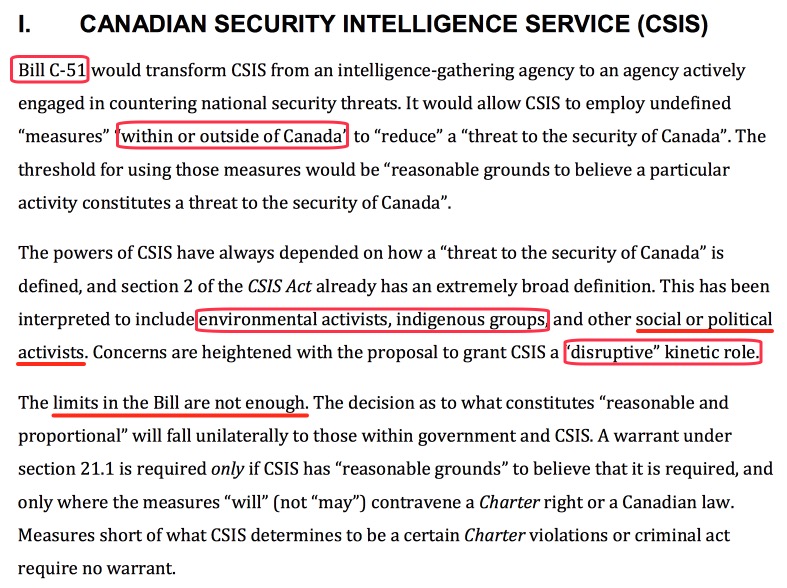
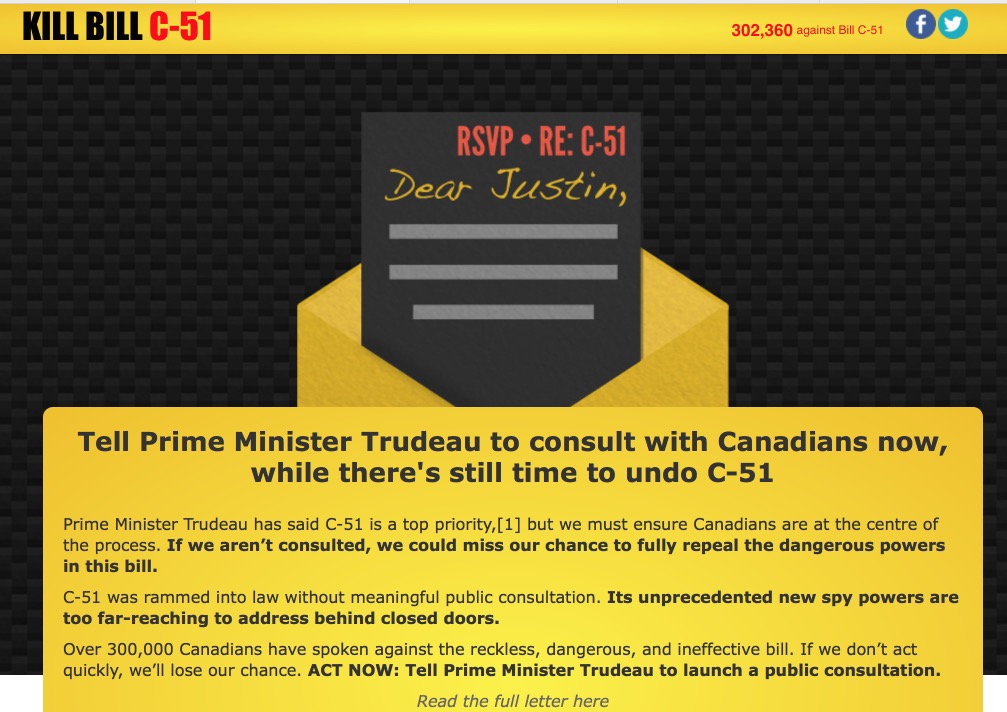


 I am concerned about possible links between glyphosate (in RoundUp and other brand herbicides) in our agriculture, and ill-health, as well as lack of information on which food contains how much of it. You are aware of a rising number of papers showing possible link between glyphosate and various illnesses, as well as World Health Organization reclassifying glyphosate as a probable human carcinogen. I am still waiting for that meeting with yourself, Dr Thierry Vrain and myself, but have not heard back from your office in months. This subject will make a very interesting issue during the up coming provincial elections in 2016.
I am concerned about possible links between glyphosate (in RoundUp and other brand herbicides) in our agriculture, and ill-health, as well as lack of information on which food contains how much of it. You are aware of a rising number of papers showing possible link between glyphosate and various illnesses, as well as World Health Organization reclassifying glyphosate as a probable human carcinogen. I am still waiting for that meeting with yourself, Dr Thierry Vrain and myself, but have not heard back from your office in months. This subject will make a very interesting issue during the up coming provincial elections in 2016.


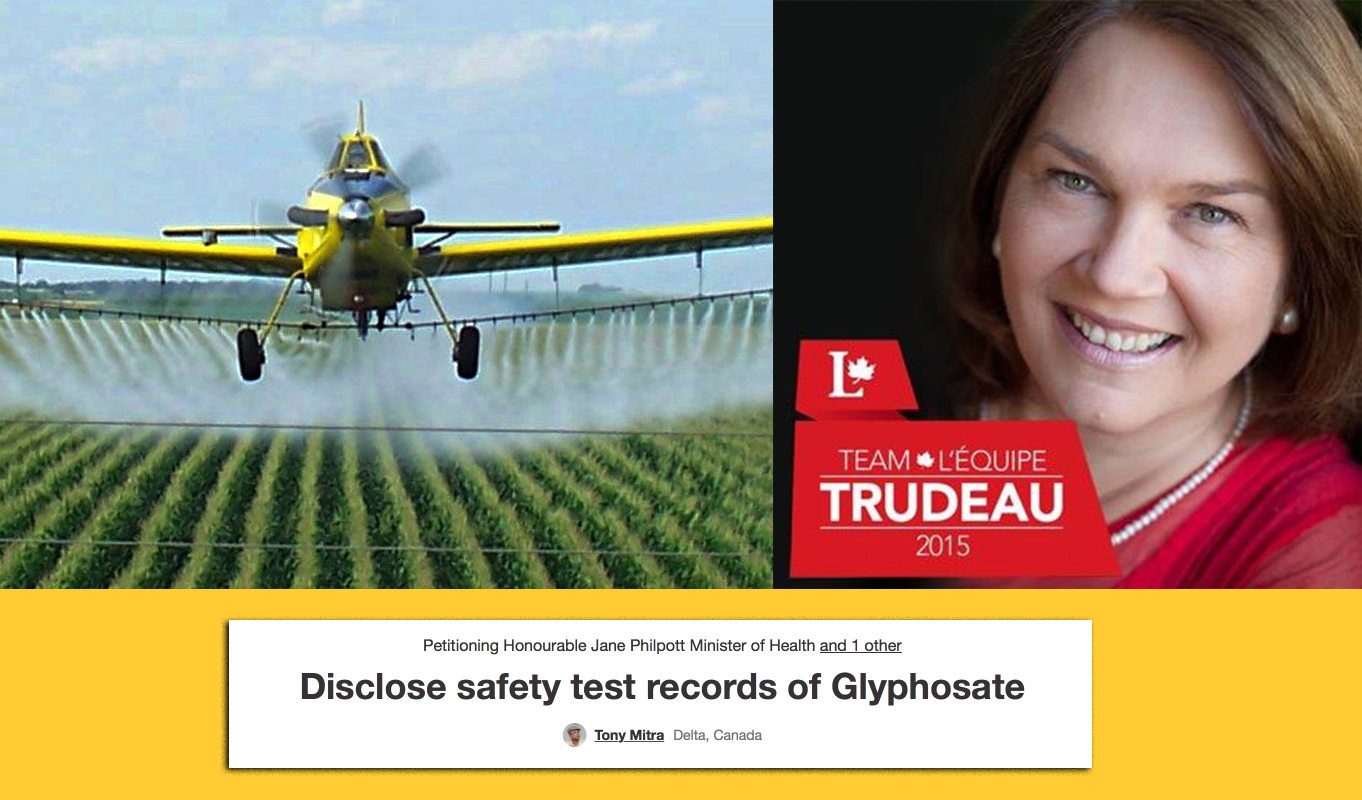
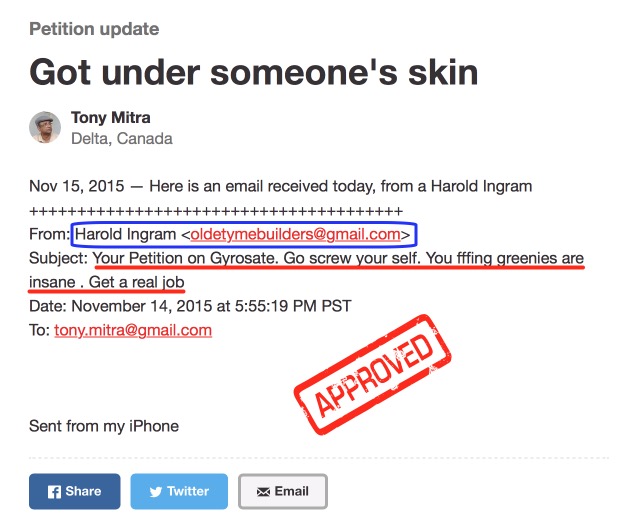


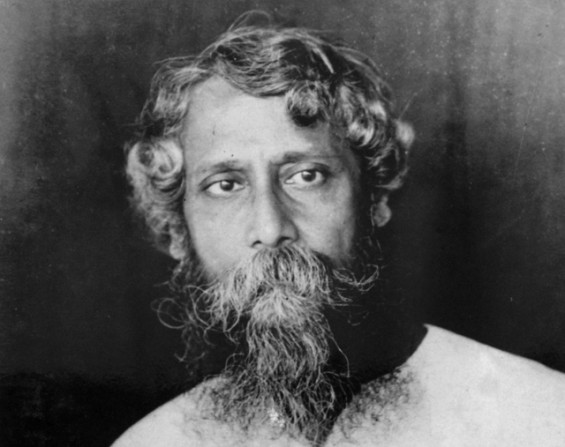 Here is a lecture Rabindranath Tagore delivered at the Calcutta university back in 1922, followed by another one by Leonard Elmhirst, who had joined Tagore for rural reconstruction efforts in Eastern India in the 1920s.
Here is a lecture Rabindranath Tagore delivered at the Calcutta university back in 1922, followed by another one by Leonard Elmhirst, who had joined Tagore for rural reconstruction efforts in Eastern India in the 1920s.  But, with the rise of the standard of living, property changes its aspect. It shuts the gate of hospitality which is the best means of social communication. Its owners display their wealth in an extravagance which is self-centred. This creates envy and irreconcilable class division. In other words property becomes anti-social.
But, with the rise of the standard of living, property changes its aspect. It shuts the gate of hospitality which is the best means of social communication. Its owners display their wealth in an extravagance which is self-centred. This creates envy and irreconcilable class division. In other words property becomes anti-social.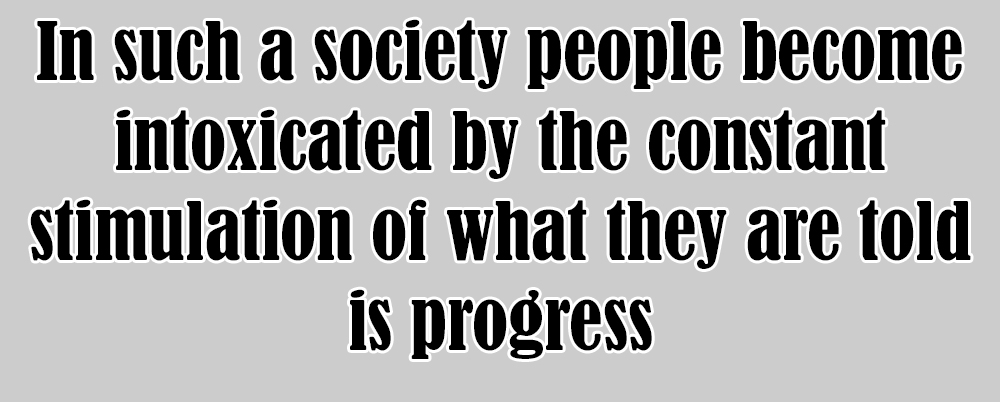 This passion of greed that rages in the heart of our present civilization, like a volcanic flame of fire, is constantly struggling to erupt in individual bloatedness. Such eruptions must disturb mans creative mind. The flow of production which gushes from the cracks rent in society gives the impression of a hugely indefinite gain. We forget that the spirit of creation can only evolve out of our own inner abundance and so add to our true wealth. A sudden increase in the flow of production of things tends to consume our resources and requires us to build new storehouses. Our needs, therefore, which stimulate this increasing flow, must begin to observe the limitation of normal demand. If we go on stoking our demands into bigger and bigger flames the conflagration that results will no doubt, dazzle our sight, but its splendour will leave on the debit side only a black heap of charred remains.
This passion of greed that rages in the heart of our present civilization, like a volcanic flame of fire, is constantly struggling to erupt in individual bloatedness. Such eruptions must disturb mans creative mind. The flow of production which gushes from the cracks rent in society gives the impression of a hugely indefinite gain. We forget that the spirit of creation can only evolve out of our own inner abundance and so add to our true wealth. A sudden increase in the flow of production of things tends to consume our resources and requires us to build new storehouses. Our needs, therefore, which stimulate this increasing flow, must begin to observe the limitation of normal demand. If we go on stoking our demands into bigger and bigger flames the conflagration that results will no doubt, dazzle our sight, but its splendour will leave on the debit side only a black heap of charred remains.
 The farm was organic in his grandfathers time. During his fathers time, it followed the Govt promoted trend and became chemical dependent, toxic and unsustainable for the land and the planet.
The farm was organic in his grandfathers time. During his fathers time, it followed the Govt promoted trend and became chemical dependent, toxic and unsustainable for the land and the planet.


